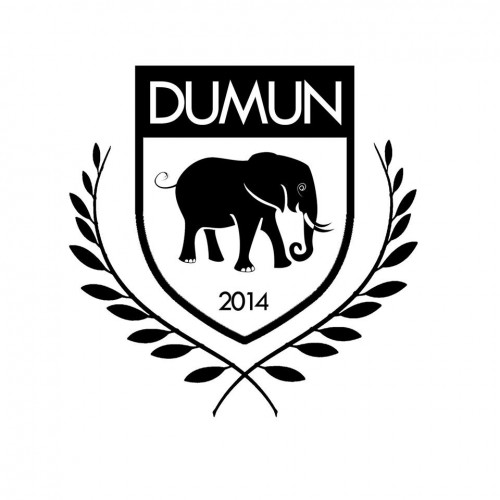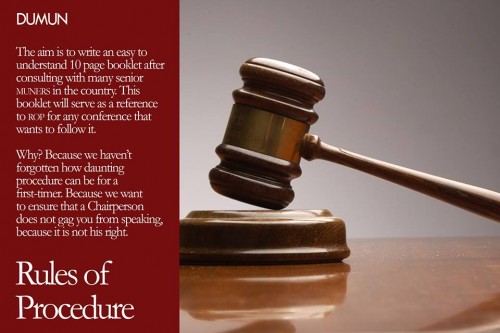
‘Over years, we rarely see new schools and institutions appear as a blip on the Indian Model UN radar’ commented the Secretary-General Siddharth Soni when asked about how DUMUN intends to take the idea of Model United Nations to new institutions. ‘In 2014, we started the School Outreach Programme, an initiative that travels around North India and trains various schools and colleges entirely new to this concept, and inviting a small delegation to participate in one of India’s most esteemed conferences at Delhi University. More than 30 percent of the total delegate strength at the conference will be through School Outreach Programme.’
Soni was appointed the Secretary-General of the Delhi University Model United Nations that will attract over 300 delegates from India and abroad from 21 to 23 March this year. Having participated in over 40 Model United Nations conferences and trained over 30 institutions, Siddharth Soni is one of the most well-known names in the Indian Model United Nations circuit. At DUMUN 2014, he undertook the Rules of Procedure initiative with a group of well-known MUNers from around the country collaborated to create a resource document that could serve as conformist procedure for conferences around the country. ‘It was written to make Model United Nations conferences less daunting for first-timers, and more challenging for the veterans, at the same time.’
Certainly, one of the most despised truths about a fragmented Model United Nations culture in India would be variations in Rules of Procedure that makes participation and exchange of ideas very frustrating. Oftentimes, the absence of a unified Rules of Procedure also trickles down in effect, into an absence of a code of conduct for the Executive Board – an instance that is not uncommon anywhere in the world, where the Chairpersons often exceed their capacities, either to intervene in substantive debate, or to work around conformist procedure, making the conduct even more questionable. The DUMUN Rules of Procedure that will be inaugurated in the closing ceremony will be an end document of months of debate on how business should be conducted in the circuit, and will serve as a document that any conference in the world can adopt. Delhi University will print over three thousand copies of the booklet to be distributed to training institutions, Model United Nations conferences and veteran MUNers around India and the Asian subcontinent.

DUMUN also happens to be one of the few conferences in the country that welcomes International participation, and acts as a showcase for the quality and sophistication of debate that Indian Model United Nations circuit is well-known for. ‘It is remarkable, the quality of ideas that Indian delegates have about problems that India and the Asian subcontinent faces everyday’ commented Syeda Asia, when asked about her experience about having served on a DUMUN Executive Board before, and doing it again this March. Syeda Asia will chair a simulation of the Organization of Islamic Cooperation at the conference, that will discuss ‘Heterodoxy in Islamic Education.’
‘A very high level of debate, when it comes to issues like Islamic education and Indo-pak is typical of a council being simulated in India’ she remarked, ‘probably because as Indian students, our education has been particularly related to these issues.’ It is well understood that while Delhi University Model United Nations leads from the front, it does not want to drastically reengineer the way MUNs work in the country – it wants to bring a gradual change for the good. Not only has DUMUN been growing every year, it has been on the forefront of innovation by spearheading the World’s first simulation of the UN Military Staff Committee, India’s first triple joint crisis committee, its first simulation of a football council and now by leading a team to create India’s first set of documented procedure. Substantive Aspects of the Conference remain the top most priority for the conference organisers, every year to ensure that the learning curve associated with Model UN in India keeps going upward.
A football council could be surprisingly cohesive to a student’s understanding of how International diplomacy works. DUMUN took a bold step forward to simulate FIFA Congress following the legacy established since the past two editions of the conference. This year this particulr committee will discusses issues like Racism in football, so that budding MUNers could understand the larger issues that plague the world in a very familiar debating environment. ‘It is essential to make Model United Nations an all-encompassing activity’ noted Soni, ‘behind technical and legal debating, we cannot forget an elementary need for Model United Nations in a country like India: its presence to sensitize students towards world conflicts and world issues.’
‘DUMUN has never been about three days, and I am very glad that our efforts at integrating Model United Nations into India’s essential education system is coming out so well, even outside conference’ said Hisham Ahmed Rizvi, advisor to the entire conference, when asked how he felt about the various initiatives that DUMUN has taken alongside organizing the conference. ‘It should never be just about the conference, it should be about everything we learn, and everything we give back to those we learn from.’
More information on the journey that the DUMUN is undertaking in India could be found at http://www.dumun.in

